Key Points of Legal Due Diligence for Private Equity Investment with Insurance Funds——Target Fund
Preface
At the beginning of 2021, the General Office of the Central Committee of the Communist Party of China and the General Office of the State Council issued the "Action Plan for Building a High-Standard Market System", proposing to increase the equity investment ratio of insurance funds, and to study and improve insurance institutions' investment in private equity wealth management products, private equity funds, venture capital funds, and government-funded funds. Related policies on industrial investment funds and debt-to-equity swaps. On November 26, 2021, the China Banking and Insurance Regulatory Commission (hereinafter referred to as the "CBIRC") issued the "Guiding Opinions on the Banking and Insurance Industry Supporting High-Level Technology Self-reliance and Self-improvement", supporting insurance institutions and others to invest in venture capital funds, government industries, etc. investment funds, etc. On December 17, 2021, the China Banking and Insurance Regulatory Commission issued the "Notice of the China Banking and Insurance Regulatory Commission on Revising Some Regulatory Documents in the Field of Insurance Fund Utilization" (Yinbaojianfa [2021] No. 47, hereinafter referred to as "Circular 47"), which not only canceled the Previously, insurance funds[1] invested in venture capital funds with a single fund raising limit of no more than 500 million yuan. Insurance funds were also allowed to invest in equity investment funds actually controlled by non-insurance financial institutions, and supported insurance institutions to strengthen and professional equity investment. Institutional cooperation enriches the long-term funding sources of start-ups. This new regulation is undoubtedly a great benefit to the insurance industry and the private equity industry.
In fact, the history of equity investment by my country's insurance institutions is not long. Before 2010, the scope of investment for insurance funds was relatively limited, and more investments were made in projects with lower risks and relatively stable returns. Beginning in the second half of 2010, with the promulgation of the "Interim Measures for Insurance Fund Investment in Equity" (hereinafter referred to as "No. "Equity Investment Fund") and other related financial products. The "Notice on Issues Relating to Investment of Insurance Funds in Equity and Real Estate" (hereinafter referred to as "Circular 59") issued in 2012 clarified and supplemented Circular 79, and appropriately relaxed relevant regulatory requirements. The "Circular of the China Insurance Regulatory Commission on Matters Concerning Investment of Insurance Funds in Venture Capital Funds" (hereinafter referred to as "Circular No. 101") issued in 2014 clarified that the scope of private equity funds that insurance funds can invest in is expanded to venture capital funds. The above-mentioned No. 47 document is a further policy support for insurance funds investing in venture capital funds.
Although the scope and amount of equity investment of insurance funds by the regulatory authorities is gradually liberalized, compared with other institutional investors, insurance institutions have higher requirements for the safety of funds. Therefore, conducting a full range of pre-investment due diligence on the insurance institutions themselves, the funds to be invested and their managers is not only a mandatory requirement of the China Banking and Insurance Regulatory Commission for private equity investment of insurance funds, but also can improve the investment of insurance funds to a certain extent. Security of Private Equity Investments. Yang Chunbao's lawyer team recently provided a full range of legal services for a BAT-based insurance institution to invest in a well-known domestic private equity fund, including pre-investment legal due diligence and issuing legal opinions on the legal compliance of insurance funds investing in private equity funds. This article intends to combine our relevant service experience and relevant regulatory regulations to respectively explain the relevant regulatory requirements that the target fund, fund manager, and insurance institution should meet in the process of private equity investment with insurance funds, with a view to providing a better understanding of the proposed private equity investment. It provides useful references for insurance institutions investing, as well as private equity funds and their managers who plan to accept investment from insurance funds. This is the first article: Target Funds.
A
Basic information of the target fund
1.Qualification
The target fund shall be legally established and legally exist, and shall not be terminated as stipulated in relevant laws and regulations, its articles of association or the partnership agreement.
2.Registration
According to the "Securities Investment Fund Law of the People's Republic of China", "Interim Measures for the Supervision and Administration of Private Equity Investment Funds", "Several Provisions on Strengthening the Supervision of Private Equity Investment Funds" and "Private Equity Investment Fund Manager Registration and Fund Filing Measures (Trial)" and other relevant regulations, After the private equity fund is raised, the private equity fund manager shall file with the Asset Management Association of China (hereinafter referred to as the "AMAC"). In view of the fact that the amount of capital subscribed by an insurance institution is usually relatively large, if there is a lump-sum capital contribution, and if there is a problem with the fund filing or even the filing cannot be completed, the risk for the insurance institution is relatively high. Therefore, we suggest that the insurance institution can first complete the 1 million Yuan’s first-round paid-in capital contribution meets the filing requirements, and after the fund’s filing is completed, the substantive capital contribution obligations will be fulfilled in accordance with the partnership agreement.
B
Fund investment and management
1.Investment Advisory Committee (only applicable to limited partnership target funds)
According to the provisions of Document No. 79, when an insurance company invests in an equity investment fund, if the investment fund adopts a partnership type, it shall establish an investment advisory committee. Therefore, if the target fund adopts the organizational form of a limited partnership, an investment advisory committee should be established, and matters such as the composition method and rules of procedure of the investment advisory committee should be clarified.
2.Investment related system
According to the provisions of Circular 79, when an insurance company invests in an equity investment fund, it is required that the fund should have a definite investment objective, investment plan, investment strategy, investment standard, investment process, follow-up management, income distribution and fund liquidation arrangements.
Therefore, we suggest that target funds should formulate clear investment objectives, investment plans and strategies, including investment scope, short-, medium-, and long-term industry investment strategies and investment implementation plans, etc.; In terms of investment process, the target fund should have a clear and specific investment decision-making mechanism; in terms of follow-up management, the target fund should have a detailed post-investment management system for investment projects; In terms of income distribution, the target fund should have a specific and operable distribution method for the income obtained from investment projects; in terms of fund liquidation, the target fund should have a specific liquidator and liquidation procedures.
3.Transaction structure, risk disclosure and information disclosure
According to the provisions of Circular 79, when an insurance company invests in an equity investment fund, it is required that the fund has a clear transaction structure, and the risk warning for investors should be sufficient, and the information disclosure should be true and complete. According to the provisions of Circular 59, the equity investment funds invested by insurance funds include growth funds, merger and acquisition funds, emerging strategic industry funds and funds of funds with the above equity investment funds as investment targets. Among them, the transaction structure of the fund of funds shall be simple and clear, and shall not include other funds of funds. In addition, according to the "Guiding Opinions on Regulating the Asset Management Business of Financial Institutions" (hereinafter referred to as the "New Regulations on Asset Management"), asset management products[2] can invest in another layer of asset management products, but the asset management products invested No reinvestment in asset management products other than publicly offered securities investment funds is allowed. The trustee of private equity asset management products may be a private equity fund manager. The entrusted institution shall earnestly perform active management duties, shall not re-entrust, and shall not re-invest in asset management products other than publicly offered securities investment funds. In addition, according to the new asset management regulations, private equity funds shall apply their special laws and regulations, but the content not clearly stipulated in the special laws and regulations shall apply to the new asset management regulations (the relevant regulations on venture capital funds and government-funded industrial investment funds shall be formulated separately. ). However, the "Fund Law", various departmental regulations and self-discipline rules issued by the China Securities Regulatory Commission and the Fund Industry Association have never mentioned the content of the nesting layers of asset management products. Therefore, we believe that private equity funds (venture capital funds and government-funded funds) Except for industrial investment funds) the relevant regulations on the number of nested layers of asset management products in the new asset management regulations shall apply.
Therefore, we recommend that the target fund, in terms of transaction structure, firstly, comply with the mandatory requirements of Document No. 79, Document No. 59 and the New Asset Management Regulations (if necessary); Registration (including internal registration and enterprise change registration); in terms of risk disclosure, the target fund should clearly disclose various investment risks to investors; in terms of information disclosure, the target fund should truthfully and completely disclose to each investor Various information during the continuation process, including but not limited to fund contracts, fund prospectuses, etc. [3]
4.Fund custody, risk control and exit
According to the provisions of Circular 79, when an insurance company invests in an equity investment fund, it is required that the fund has implemented an investment fund custody mechanism, the scale of raised or subscribed funds is not less than 500 million yuan, and there are expected and feasible exit arrangements and sound and effective risk control measures At the same time, it should also be traded in the market stipulated by the regulatory agency.
Therefore, we suggest that the target fund should entrust a financial institution established in accordance with the law and qualified for fund custody to sign a fund custody agreement and open a custody account. The target fund should ensure that its fundraising scale is not lower than the lower limit of the fundraising/subscription capital scale stipulated in Circular 79. In terms of risk control measures, the target fund should have the risk control system required by relevant regulatory regulations such as risk management system, risk isolation system and risk reserve system.
5.Investment direction and investment target
According to the provisions of Document No. 79, when an insurance company invests in an equity investment fund, it is required that the investment direction or investment target of the fund meet the following requirements: registered and established in accordance with the law, with legal person qualifications; in line with national industrial policies, with qualifications stipulated by relevant state departments; shareholders and Senior management personnel have a good integrity record and business reputation; the industry is in the growth stage, mature stage, or a strategic new industry, or has a clear intention to go public and a high value of mergers and acquisitions; it has market, technology, resources, competitive advantages, and room for value improvement. It is expected to generate good cash returns and have a definite dividend system; the professional knowledge, industry experience and management ability of the management team are suitable for the duties it performs; no major legal disputes are involved, the property rights of assets are complete and clear, and there is no legal basis for equity or ownership Defects; there is no affiliate relationship with insurance companies, investment institutions and professional institutions, except those permitted by regulatory regulations and reported and disclosed in advance.
Therefore, we suggest that the target fund should promise that the projects it intends to invest in should select investment targets in strict accordance with Document No. 79 and relevant laws and regulations that will be effective at that time, and conduct detailed due diligence. If the insurance funds are involved in the expansion of the target fund, the target fund should also confirm that the companies it has invested in comply with the mandatory provisions of the above-mentioned Document No. 79 on investment direction and investment targets. Seek professional advice from legal and/or financial advisors, and provide reasonable explanations on the premise of ensuring legal compliance.
C
Other prudential conditions stipulated by the China Banking
and Insurance Regulatory Commission
According to the provisions of Document No. 79, when an insurance company invests in an equity investment fund, it is required that the fund should also meet other prudential conditions stipulated by the China Banking and Insurance Regulatory Commission.
In recent years, while the financial regulatory authorities have relaxed the restrictions on insurance investment, they have also continuously strengthened supervision and issued new regulations from time to time. Therefore, the target fund must not only comply with the regulatory regulations that were in force at the time, but also promise that it will carry out future investment. Investment activities will follow other prudential conditions stipulated by the China Banking and Insurance Regulatory Commission.
D
Requirements for insurance capital to participate in fund expansion
According to the "Private Equity Fund Filing Guidelines (2019 Edition)" (hereinafter referred to as "Filing Guidelines"), if a private equity investment fund that has been filed and approved needs to add new investors or increase the subscribed capital of existing investors, the target The fund must meet the following conditions: the organizational form of the fund is corporate or partnership; the fund is managed by a custodian established in accordance with the law and qualified for fund custody; the fund is within the investment period stipulated in the contract; the fund conducts portfolio investment and invests in a single target The capital of the fund shall not exceed 50% of the fund's final subscribed capital contribution; the increased subscribed capital contribution shall not exceed 3 times the subscribed capital contribution at the time of filing.
Considering that the volume of insurance funds is usually relatively large, if the target fund accepts investment from insurance funds when expanding its fundraising, it should ensure that the amount of investment to be invested by insurance funds meets the aforementioned requirements of the AMAC. At the same time, insurance companies should also comply with the restrictions on investing in a single fund, which we will introduce in this series of "Insurance Companies".
Conlusion
We expect that with the liberalization of regulatory policies, insurance institutions will participate in private equity fund investment in more diversified ways and with greater efforts, bringing fresh water to the domestic equity investment market. For private equity fund managers, only by thoroughly understanding the regulatory requirements for insurance funds investing in private equity funds can they win the favor of insurance institutions and break through the dilemma of "difficult to raise funds". The fund compliance introduced in this article is only a small step to meet regulatory requirements. The next article will focus on the key points of compliance for fund managers. stay tuned.
[1] According to the "Administrative Measures for the Utilization of Insurance Funds", insurance funds are defined as "capital funds, provident funds, undistributed profits, various reserves and other funds denominated in domestic and foreign currencies of insurance group (holding) companies and insurance companies. .”
[2] According to Circular 106, asset management products include but are not limited to bank non-principal-guaranteed financial products in RMB or foreign currency, fund trusts, securities companies, subsidiaries of securities companies, fund management companies, fund management subsidiaries, futures companies, futures Asset management products issued by company subsidiaries, insurance asset management institutions, and financial asset investment companies, etc.
[3] According to the "Administrative Measures for Information Disclosure of Private Equity Investment Funds", information disclosure obligors refer to private equity fund managers, private equity fund custodians, laws, administrative regulations, China Securities Regulatory Commission (hereinafter referred to as the China Securities Regulatory Commission) and China Securities Regulatory Commission. Legal persons and other organizations with information disclosure obligations stipulated by the Investment Fund Industry Association (hereinafter referred to as the China Asset Management Association);
The information that the information disclosure obligor shall disclose to investors includes:
(1) Fund contract;
(2) Propaganda and promotion documents such as prospectuses;
(3) The main rights and obligations clauses in the fund sales agreement (if any);
(4) Investment information of the fund;
(5) Assets and liabilities of the fund;
(6) Distribution of investment income of the fund;
(7) Expenses borne by the Fund and arrangements for performance remuneration;
(8) Possible conflicts of interest;
(9) Major lawsuits and arbitrations involving private equity fund management business, fund property, and fund custody business;
(10) Other major information that affects the legitimate rights and interests of investors as stipulated by the China Securities Regulatory Commission and the China Asset Management Association.
According to the "Private Equity Fund Filing Instructions (2019 Edition)", the manager should clarify the content, frequency, method, disclosure responsibility and Information disclosure channels and other matters, continue to disclose to investors in accordance with laws and regulations fund raising information, investment structure, specific information on special purpose vehicles (if any), leverage level, income distribution, custody arrangements (if any), capital account information, major Investment risks and other major information affecting the legitimate rights and interests of investors, etc.
Author
Lawyer Yang Chunbao
First class lawyer
Senior Partner of Dentons (Shanghai) Law Firm
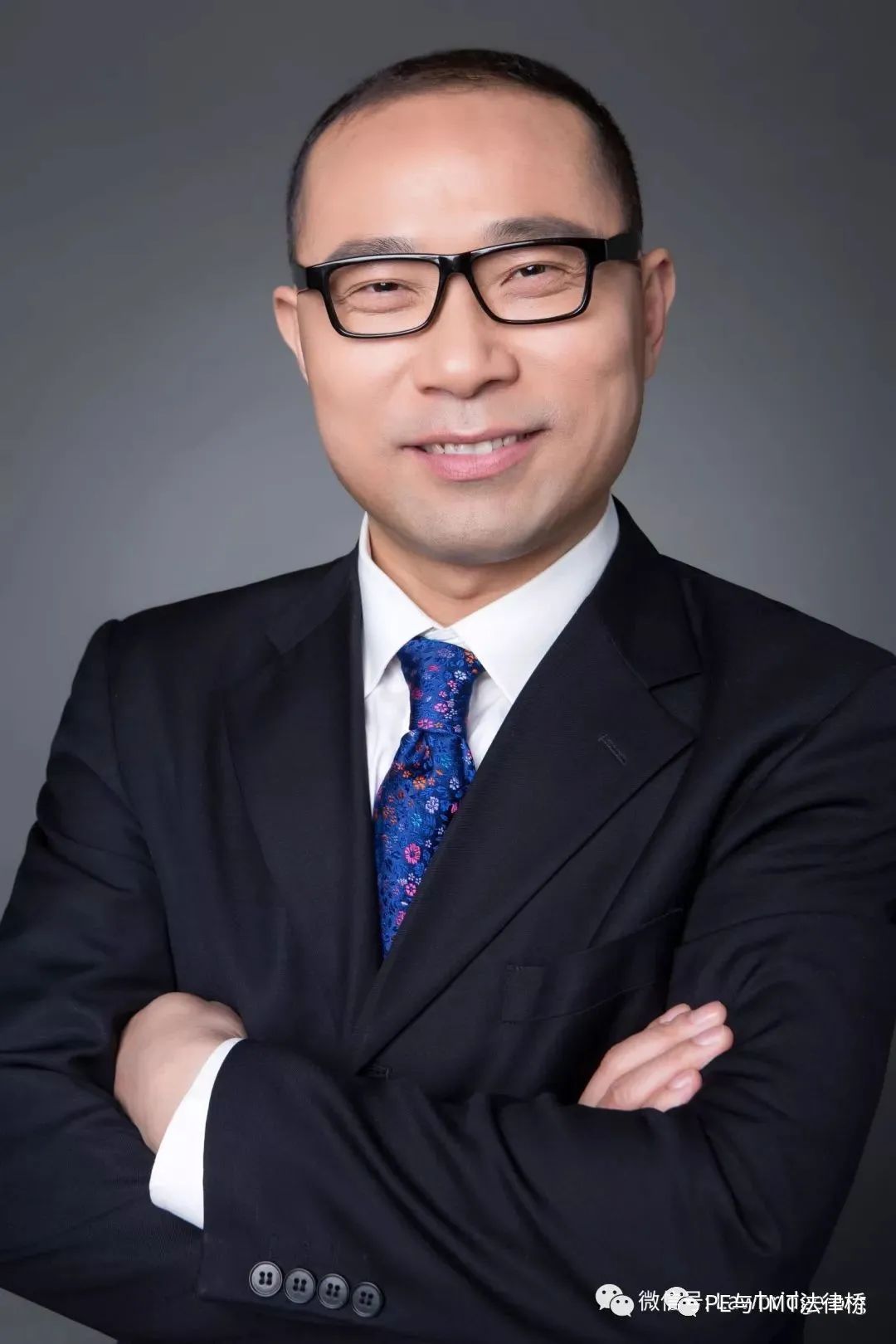
Mail:chambers.yang@dentons.cn
The leader of the private equity and investment fund professional group and the TMT industry group leader of Beijing Dentons (Shanghai) Law Firm, the deputy director of the Dentons China Technology, Culture, Leisure and Entertainment Professional Committee, and a member of the Shanghai foreign-related legal talent pool. Bachelor of Laws from Fudan University (1992), Master of Laws from University of Technology Sydney (2001), Master of Laws from East China University of Political Science and Law (2001).
Lawyer Yang has been practicing for 27 years, and has long been engaged in private equity funds, investment and financing, and M&A legal services, covering TMT, big finance, big health, real estate and infrastructure, exhibition industry, manufacturing and other industries. Since 2004, he has been specially recommended or commented by The Legal 500 and Asia Law Profiles for many times. Since 2016, he has been continuously selected as one of the "100 outstanding lawyers in China" by the internationally renowned legal media China Business Law Journal, and won the "Leaders in Law - 2021 Global Awards" He has won the title of "China Company Law Expert of the Year" and has won the "China TMT Lawyer Award" and "China M&A Lawyer Award" from Lawyer Monthly and Finance Monthly for many times. He is qualified as an independent director of a listed company. He is a part-time professor of the Law School of East China University of Science and Technology, a part-time tutor of the Law School of Fudan University, a part-time postgraduate tutor of East China University of Political Science and Law, a lecturer of the private equity president class of Shanghai Jiaotong University, and a lecturer of the transnational management talent training class of the Shanghai Municipal Commission of Commerce. Published 16 monographs including "Practical Operation and Case Analysis of Enterprise Legal Risk Prevention and Control", "Winning Capital 2: Complete Operation Guide for the Company's Investment and Financing Model Process", "Practice of Risk Prevention and Control of Private Equity Investment Funds". Lawyer Yang's practice areas are: companies, investment mergers and acquisitions and private equity funds, capital markets, TMT, real estate and construction projects, as well as dispute resolution in the above fields.
Author
Lawyer Sun Zhen
Partner of Dentons (Shanghai) Law Firm

Mail:sun.zhen@dentons.cn
Before practicing law, Ms. Sun served as the global, Asia-Pacific or China region president or executive assistant to the vice president in Fortune 500 companies such as Watts, Ingersoll Rand and Alcatel-Lucent. Excellent bilingual communication and coordination skills in Chinese and English. Lawyer Sun published "Private Equity Investment Fund Risk Prevention and Control Operation Practice" and published dozens of articles in the fields of mergers and acquisitions, funds, and e-commerce. Lawyer Sun specializes in private equity investment, corporate mergers and acquisitions, e-commerce and labor legal affairs.PE&TMT Lawbridge

Presiding lawyer: Yang Chunbao, first-class lawyer
Phone/WeChat: 1390 182 6830
Business contact and submission email:
chambers.yang@dentons.cn
Address: Floor 9/24/25, Shanghai World Financial Center, 100 Century Avenue, Shanghai























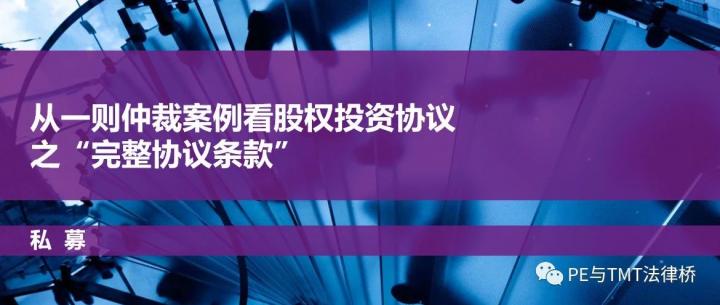
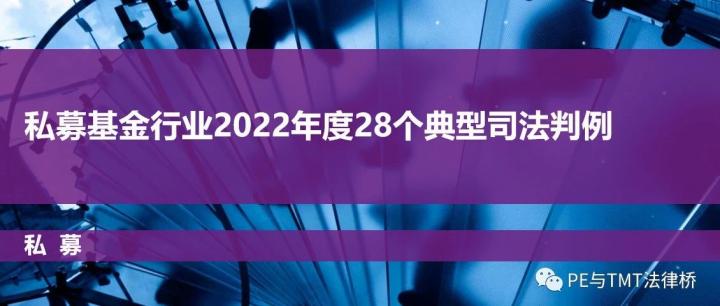
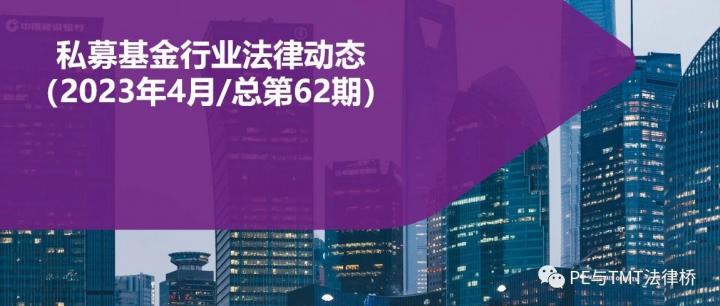
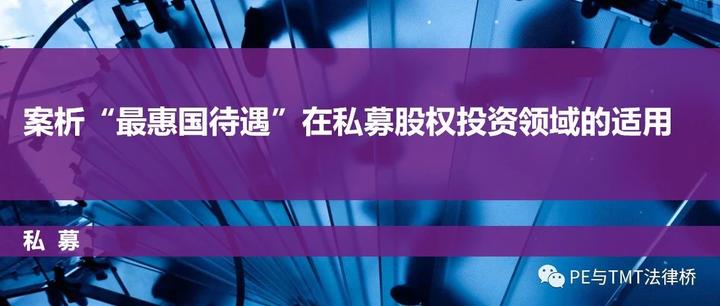



























First, please LoginComment After ~